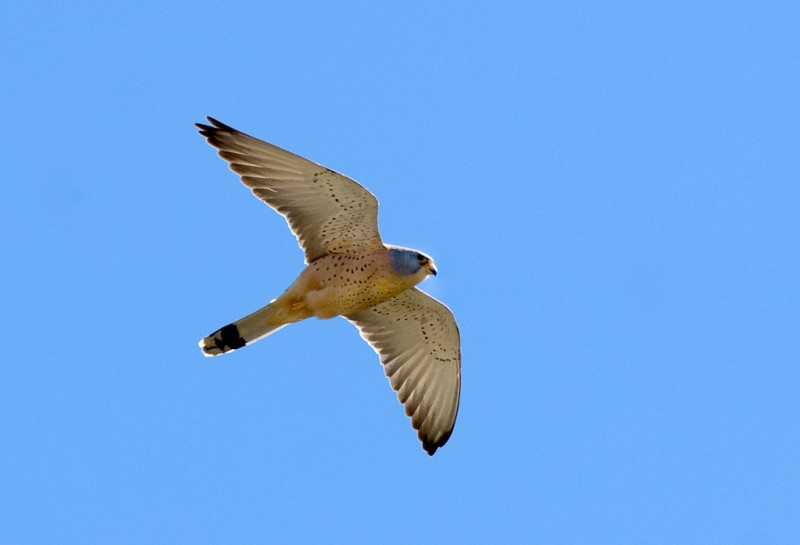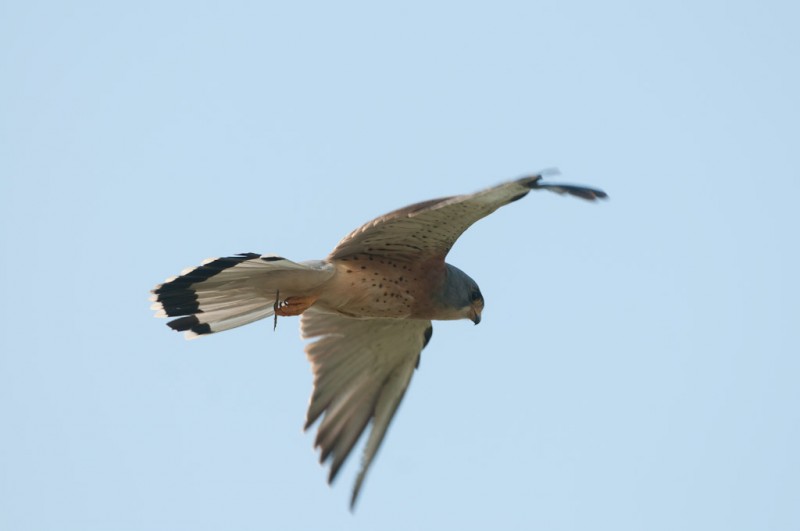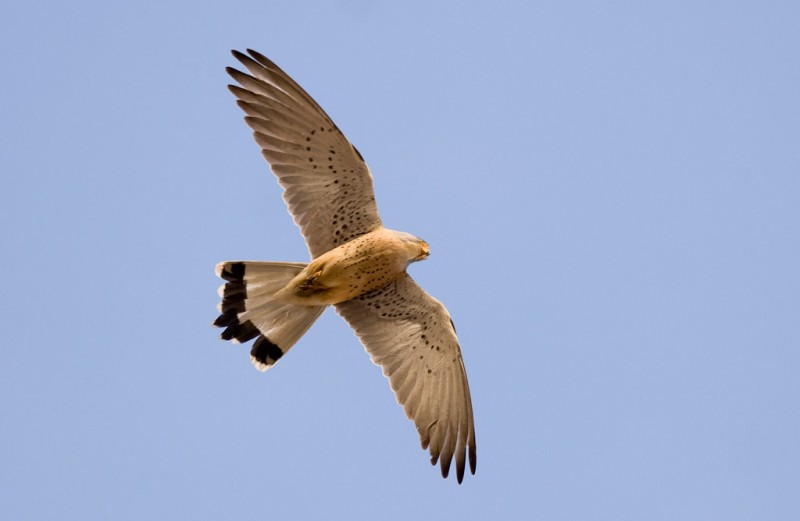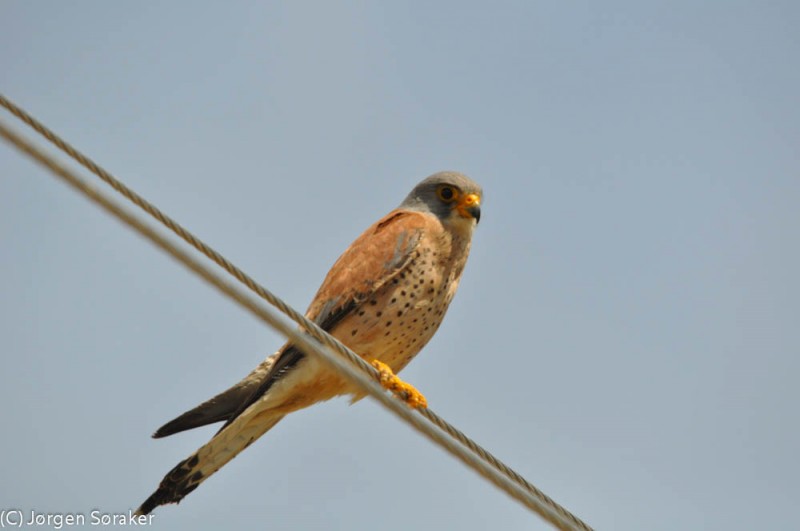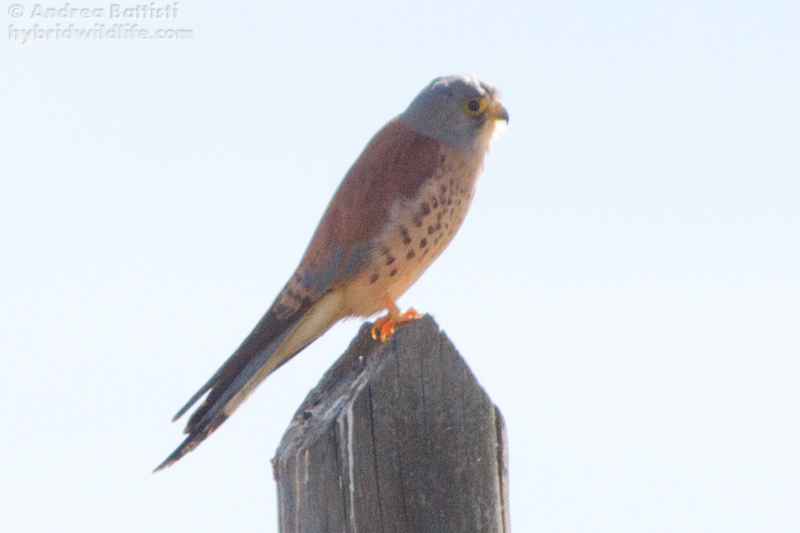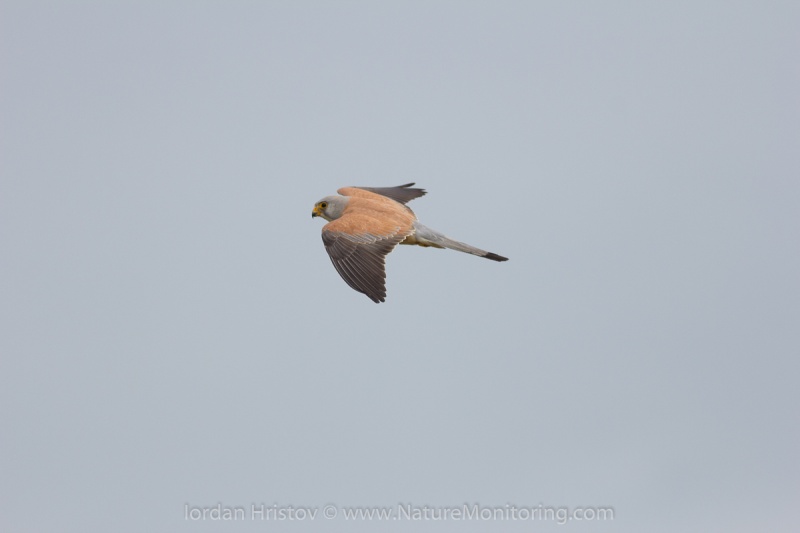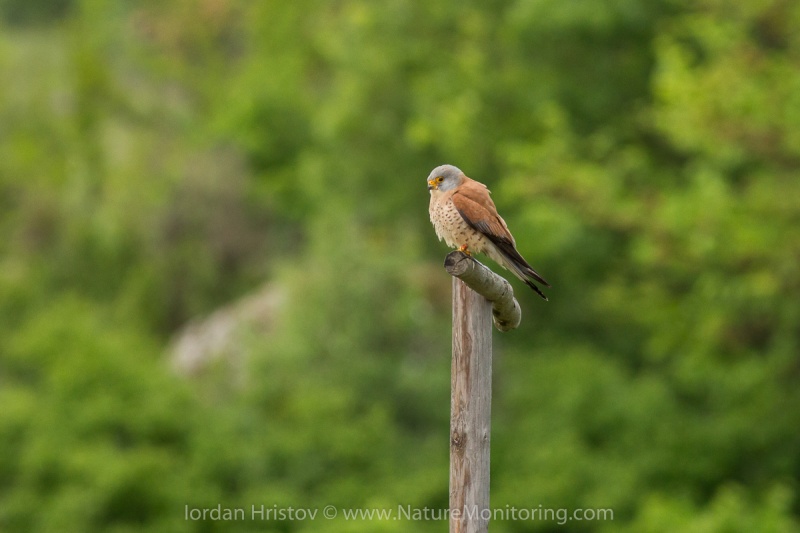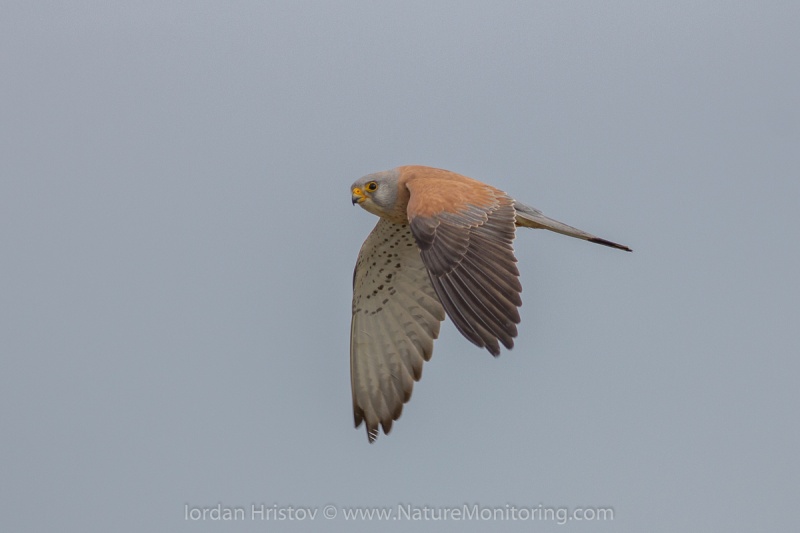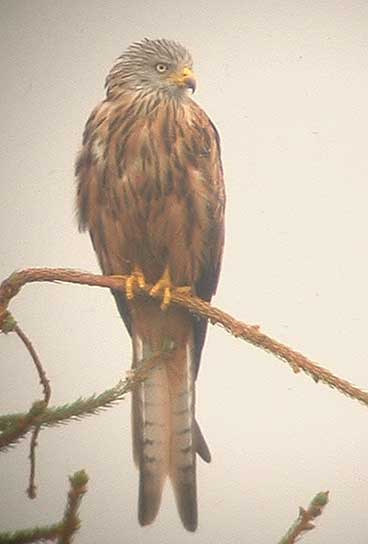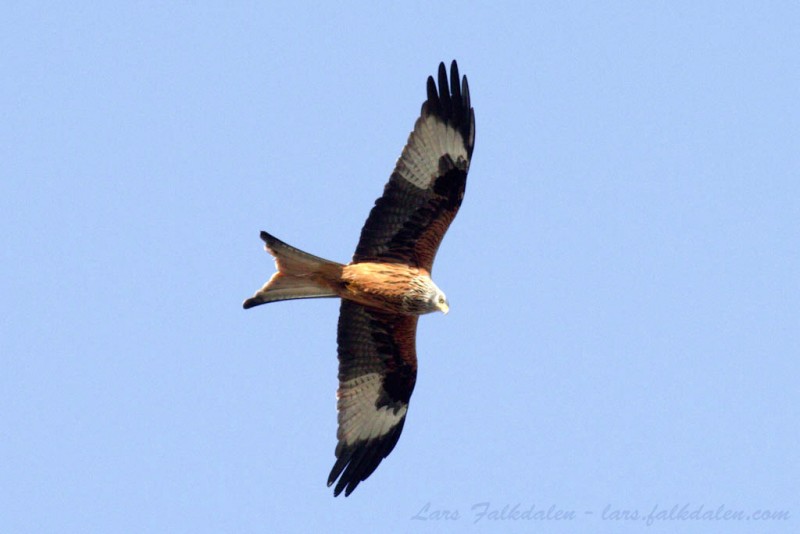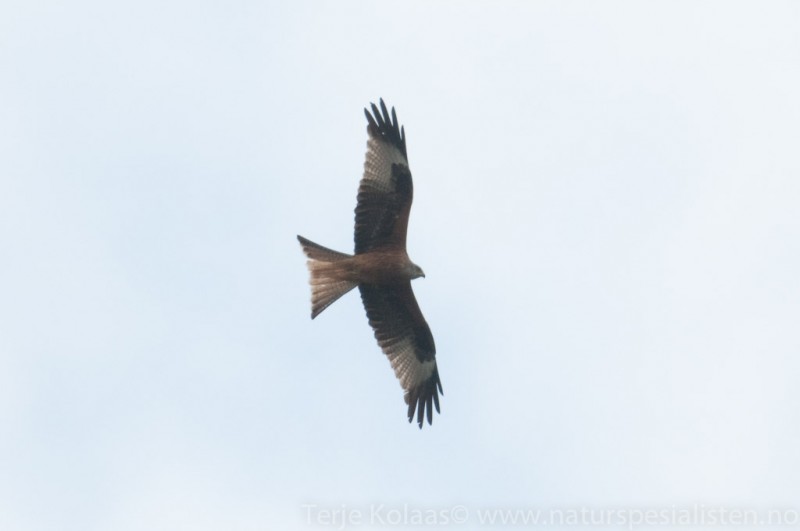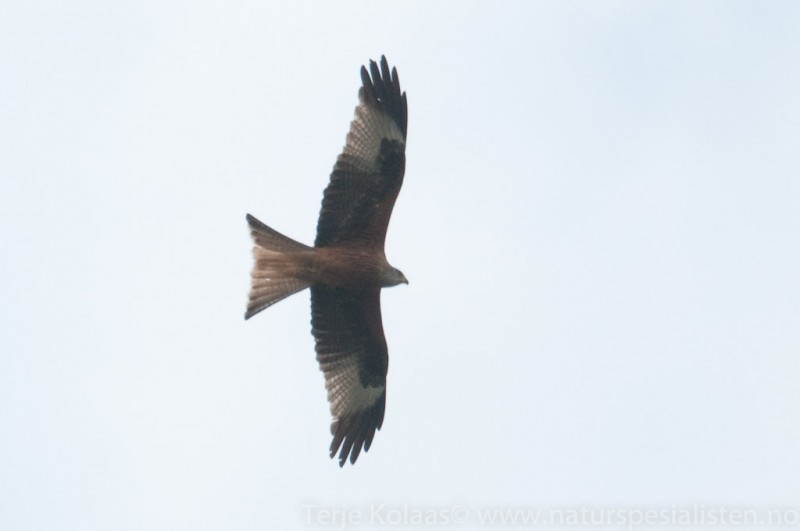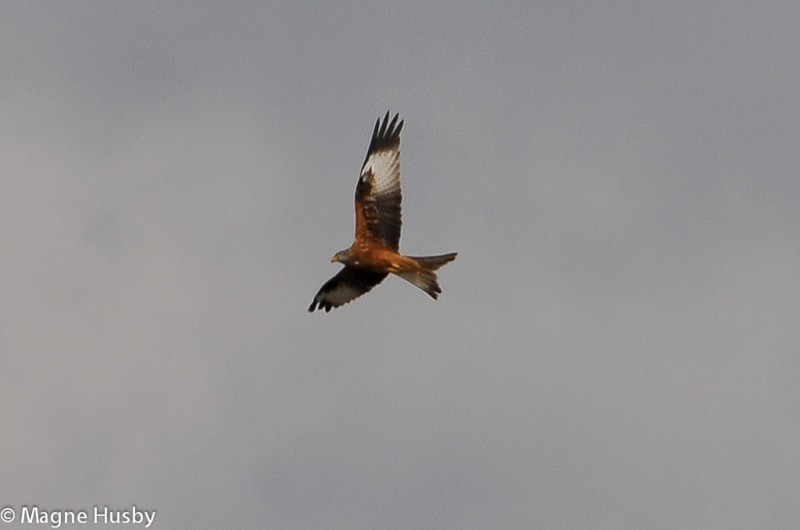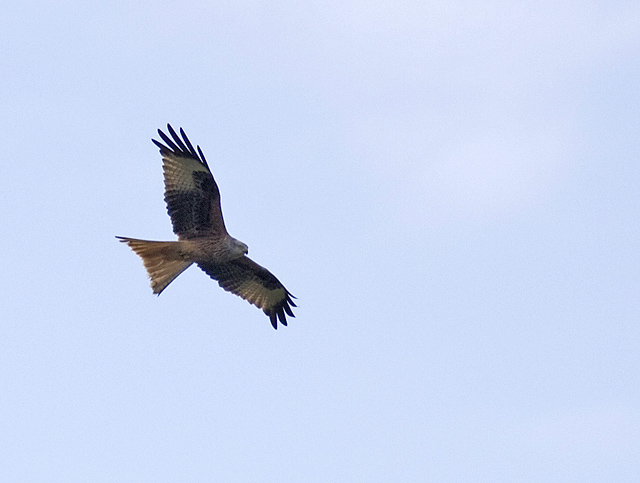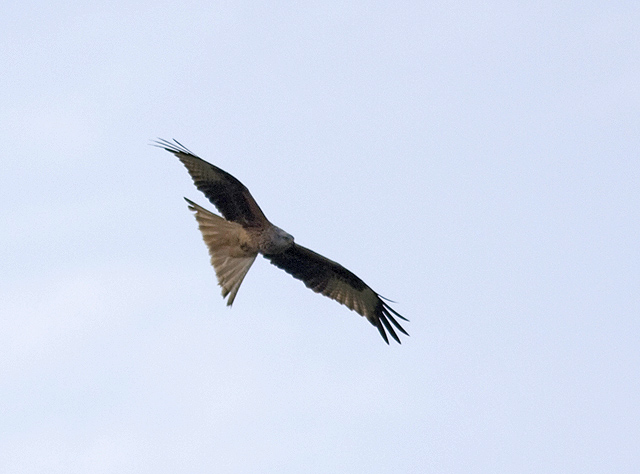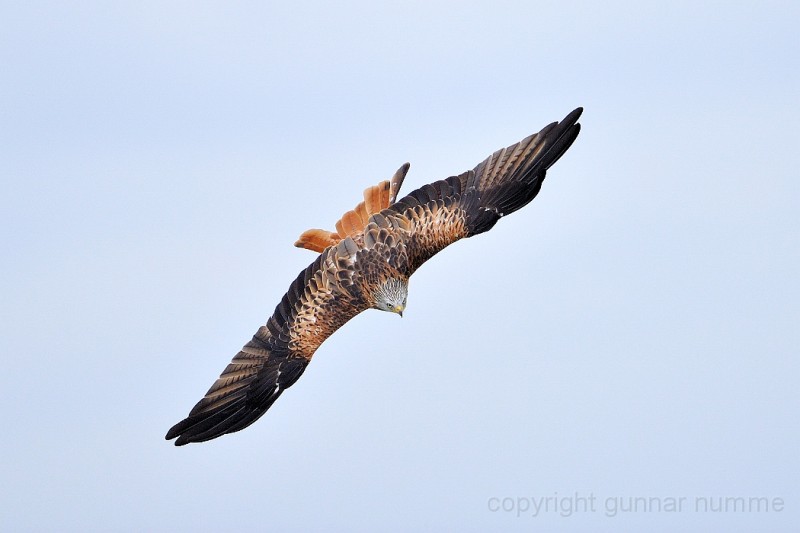Lesser Kestrel (Falco naumanni)
Red Kite (Milvus milvus)
Easily confused with Kestrel, especially in female and immature plumage. Adult male with clean, grey cheeks, no moustache-stripe and no streaking on crown. Upper wing, greater coverts are grey, contrasting with brick red forewing and back without dark spots. Belly sparsely spotted. Underside of wings paler with less barring than Kestrel, and with more pronounced dark wing tips and trailing edge. This is also more or less visible in females and young birds. Female and young birds has a less stern look than Kestrel, due to more faint facial markings. Mask do not extend behind the eye. Tail slighty shorter than Kestrel, usually with central feathers slightly elongated (rare in Kestrel). Talons pale, not black. Flight light and fast, with shallow wing-beats. Hovers less than Kestrel, but soars on up-winds. Identification of female/immature birds requires a combination of plumage, structural and behavioural (flight action) characters.
Sound:Contact call diagnostic, and quite different from Kestrel. A di- or trisyllabic "che che che", resembling Partridge in timbre, with two first syllables accentuated. Frequently used in colonies an din flocks. Also a Kestrel-like, plaintive trill "vriiiiii".
Contact call:
Distribution:
Wikipedia: map (se also Xeno-canto below)
Ecology:Birdlife ecology
Links:
Observation.org Latest observations
Image search Flickr NB! May give other species
CCA medium sized, long-winged raptor, with deeply forked tail. Adults with warm brown underparts and typical whitish "window" contrasting with black wing tips. Tail rufous above. Easily confused with Black Kite, but this has shallower forked tail and gives a darker brown impression. Note that birds gliding with tail fanned may give impression of less forked tail. Flight elegant, with frequent and typical tail twisting to maintain position in the air.
Sound:Mainly heard in breeding season. A piercing long whistle, quickly ascending, then descending "piuuu". Often used in movies to give an eerie wildlife mood. Differs from Black Kite in being a clear whistle all the way through the call, without "shivering". Higher pitched than Buzzard, and with less pause between calls.
Call:
Distribution:
Wikipedia: map (se also Xeno-canto below)
Ecology:Birdlife ecology
Links:
Observation.org Latest observations
Image search Flickr NB! May give other species
CC
 English
English Albanian
Albanian
 Armenian
Armenian
 Bulgarian
Bulgarian
 Catalan
Catalan
 Croatian
Croatian
 Czech
Czech
 Danish
Danish
 Dutch
Dutch
 Finnish
Finnish
 French
French
 Georgian
Georgian
 German
German
 Greek
Greek
 Hungarian
Hungarian
 Italian
Italian
 Latvian
Latvian
 Lithuanian
Lithuanian
 Macedonian
Macedonian
 Norwegian
Norwegian
 Polish
Polish
 Portuguese
Portuguese
 Romanian
Romanian
 Russian
Russian
 Sami : Lule sami
Sami : Lule sami
 Sami : North sami
Sami : North sami
 Sami : South sami
Sami : South sami
 Scientific names
Scientific names
 Serbian
Serbian
 Spanish
Spanish
 Swedish
Swedish
 Ukrainian
Ukrainian

